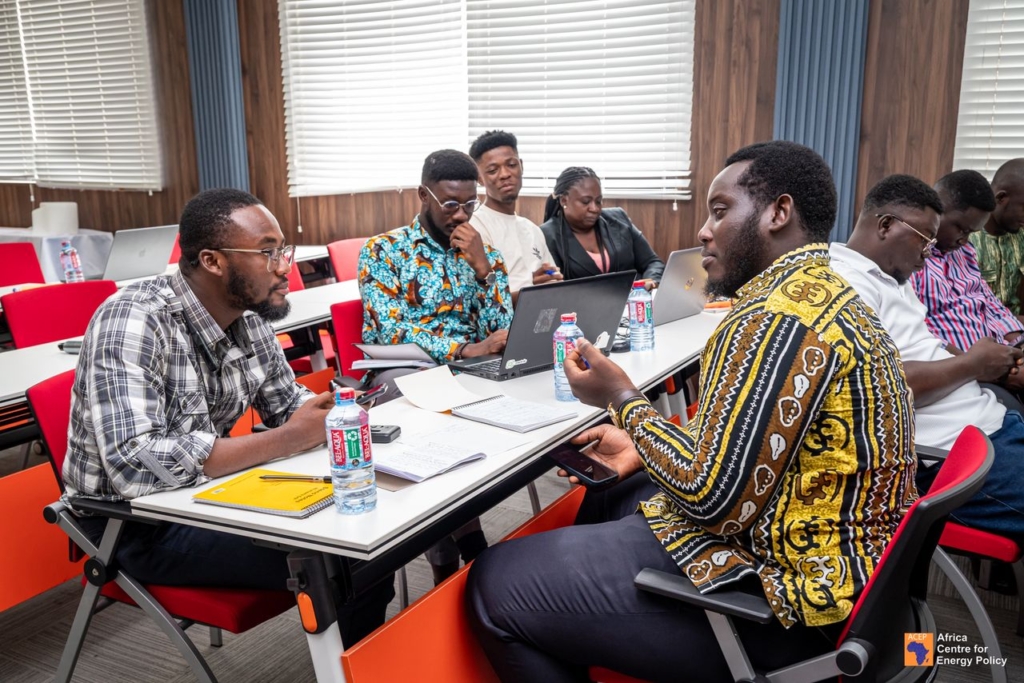
On 13th November 2025, Finance Minister Dr Cassiel Ato Forson presented the 2026 National Budget and Economic Policy to Parliament, which featured key priority areas that the government aims to focus on in the ensuing year. The theme for the budget was “Resetting for Growth, Jobs and Economic Transformation”.
Ghana has long envisaged digitalising various sectors of the economy to promote efficiency, effectiveness and transparency. The NDC government, in continuing this initiative, has spelt out many technology-driven initiatives in the new budget.
These include the National Coders’ Programme, Farmer Service Centres, Retooling the Ghana Armed Forces and the Ghana National Fire Service and VAT Fiscal Electronic Devices.
This article seeks to highlight some possible risks associated with the implementation of some selected key science, technology and innovation adoption policies captured in the budget and preferred solutions to ensure their effective implementation.
One Million Coders Programme
The ruling NDC has long touted the “One Million Coders Programme” as one of its key interventions to address the digital divide and hone the skills of the youth for the 4th industrial revolution.
Launched in May 2025, the initiative is empowering Ghanaians with coding skills and preparing them for the future job market. The Programme, currently run under the Ministry of Communication, Digital Technology and Innovations, aims at promoting digital innovation and skills development. The government in the 2025 budget statement allocated 100 million cedis for its implementation.
The programme, expected to run for 4 years, has seen another allotment in the 2026 budget statement of another 100 million-cedi intervention. While this initiative is laudable, it has its challenges, risks that could affect its effective and efficient rollout. Key among them are: digital access, digital literacy and language barriers.
Digital access in rural areas and some parts of the urban areas in the capital is one of the key stumbling blocks that could affect the effective implementation of the programme, since people in these areas lack personal computers and small devices.
To continue, language barriers and digital literacy must be addressed to fully realise the potential of this initiative.
Farmer Service Centres
Another key area supporting technological advancement is the implementation of Farmer Service Centres, where the government intends to support farmers with modernised machines to promote efficient farming and strengthen food security. These machineries include tractors, tillers, cultivators, ploughs, harrows, cutter bars, mowers, fertiliser spreaders, seed drills, sprayers, harvesters, among others.
The government made a 690-million-cedi allocation for this intervention, which is a huge investment as the government intends to build a country that produces more than it consumes and increase exportation.
While this is a commendable initiative in mechanisation, the agriculture sector and enhancing food security would require that beneficiaries, particularly smallholder farmers, are trained to be adept at harnessing these tools for increased productivity. Oversight duties must be done to ensure the rightful beneficiaries gain access to these tools.
Retooling the Armed Forces and Fire Service
Furthermore, the government aims to strengthen national security and firefighting efforts through retooling the Ghana Armed Forces (GAF) and the Ghana National Fire Service with advanced and modern technologies. To implement this initiative, beginning with the Army, the government has moved to renegotiate the US$80 million ELBIT Systems contract, to secure 19 Armoured Personnel Carriers needed to boost ground Readiness. The Navy will acquire two 72-meter Offshore Patrol Vessels fitted with helipads and modern combat systems. To protect Ghana’s maritime borders, offshore energy Assets, and trade routes. These ships will restore control over our Exclusive Economic Zone and strengthen national resilience at sea. For the Air Force, procurement will begin in 2026 for four new helicopters and two aircraft to enhance airlift, Patrol, and emergency response operations. The government will retool the Ghana National Fire Service with 100 fire tenders and assorted fire equipment while liaising with the private sector to bring in high-rise fire equipment.
AI for pre-arrival inspections at the ports
In the reading of the national budget, Dr Cassiel Ato Forson stressed on how the recent audit revealed systemic weaknesses in classification, valuation, and cargo inspection. In 2024 alone, Ghana recorded imports valued at 204 billion cedis (CIF), yet only 85 billion was taxable, pointing to misclassification and under-invoicing. To tackle this, the government will deploy AI-driven pre-arrival inspections for all cross-border shipments. This technology is programmed to detect under-valuation, flag high-risk goods, and strengthen Customs’ capacity to combat smuggling, improve safety, and protect national security. By integrating automation into port operations, we expect to significantly boost customs revenue, enhance trade efficiency, and close long-standing revenue gaps.
Promoting STEM Education
In the Education sector, another feature of the use of Science, technology and innovation to promote efficiency is the construction of science and ICT laboratories, which was highlighted in the budget. The minister emphasises the reality that “while Category A schools receive overwhelming demand, Category C schools, which hold more than half of available spaces, remain under-enrolled due to infrastructure and quality gaps. “This inequity must end, and it will end. Rt. Hon. Speaker, we will accordingly;
Upgrade another 30 Category C schools to Category B level, with new classrooms, dormitories, modern resource centres, digital learning centres and water and sanitation systems”, the minister noted.
This will be drawn from the 33.3 billion cedis budgetary allocation to the Education Sector. Some issues that may arise, as is mostly noticed, are abandoned projects due to funds not being released on time for effective implementation within the timelines.
Women’s Development Bank to support businesses
An initiative highlighted in the budget that falls under innovation is the Women’s Development Bank, where the government seeks to restore confidence in women-led start-up businesses to boost MSMEs and reduce the burden of high interest rates and collateral loans from other lending agencies. In 2025, the government invested 51.3 million cedis in the establishment of the bank, and to reiterate the importance of the initiative, the invested 401 million cedis to support the bank in the 2026 budget, not just to cover the seed capital to start the bank of 400 million cedis, but also to use 1 million cedis for the establishment of the bank. But a common risk that affects all banks and might hinder the successful implementation of the initiative is incurring bad debts after giving out loans to its customers, and until measures are put in place to tackle this issue, it is bound to repeat itself.

Conclusion
Summarily, the 2026 National Budget demonstrates the government’s continued commitment to leveraging science, technology, and innovation as critical enablers of national development, job creation, and institutional reform. The outlined initiatives—from the One Million Coders Programme and Farmer Service Centres to the retooling of the security services, deployment of AI-driven customs systems, expansion of science and ICT laboratories, and the establishment of the Women’s Development Bank—illustrate a deliberate effort to reset the economy for inclusive growth and transformation.
However, as highlighted, these high-impact interventions are not without risks. Challenges such as limited digital access, language and literacy barriers, infrastructural gaps, procurement delays, and the persistent threat of bad loans in financial support schemes must be anticipated and proactively addressed. Effective implementation will therefore require not only adequate funding but also strong monitoring mechanisms, timely release of resources, cross-sectoral coordination, and continuous capacity building.
Ultimately, the success of these science, technology and innovation policies hinges on the government’s ability to translate intentions into action, ensuring that every cedi invested yields measurable improvements in efficiency, transparency, productivity, and equity. If these risks are mitigated and the proposed solutions embraced, the 2026 budget has the potential to significantly accelerate Ghana’s journey toward digital advancement, economic resilience, and shared national prosperity.
This article follows a one-day workshop training for journalists on the 2026 budget by the Africa Centre for Energy Policy (ACEP).